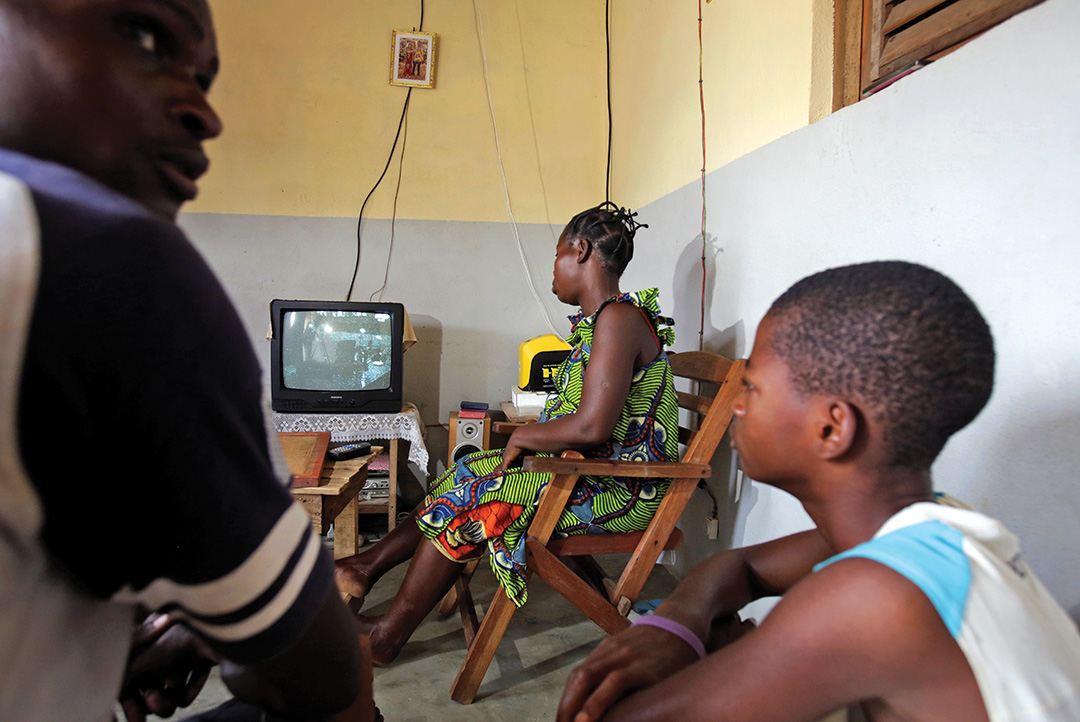REUTERS
Standing by a towering equatorial forest, Jean-Noel Kouame’s new breeze-block house may be beyond the reach of Côte d’Ivoire’s power grid, but it’s perfectly located for solar power.
Buoyed by success in East Africa, off-grid solar power startups are pouring into West Africa, offering pay-as-you-go kits in a race to claim tens of millions of customers who lack reliable access to electricity.
The main challenge facing smaller companies now is how to raise enough money to supply the expensive solar kits in return for small upfront payments from customers.
In Abidjan, Kouame doesn’t know when, or if, the national grid will reach the outer edge of the urban sprawl, but thanks to his new solar panel kit he has indoor lighting, an electric fan and a television. But it’s the lightbulb hanging outside his front door that he values the most.
“At night we were scared to go outside,” the 31-year-old taxi driver said. “Where there is light, there is safety.”
Some 1.2 billion people around the world have no access to a power grid, according to the International Energy Agency. Lighting and phone charging alone costs them $27 billion a year, and some estimates put their total annual energy costs at more than $60 billion.
Although governments in much of the developing world are extending access to national networks, Africa is lagging, with less than 40 percent of households connected.
But what has long been decried as a major obstacle to Africa’s development is viewed as an opportunity by entrepreneurs such as Nir Marom, co-founder of Lumos Global, the Dutch startup that built and sold Kouame his kit.
“I read an article about people paying 50 cents a day for kerosene and candles, and that just didn’t make sense,” Marom said. “I said I can give them four kilowatt hours for the price of kerosene. And that started everything.”
Lumos Global’s kits, which cost about $600, include a solar panel linked to a battery that supports power sockets, a mobile phone adapter and LED lightbulbs.
Kouame, who paid 30,000 CFA francs ($57) upfront for his kit, is now leasing-to-own. A digital counter on the yellow battery pack tells him when he needs to top up his account using his mobile phone.
If he doesn’t pay, the kit, which also houses a global positioning system, shuts down. But in five years, he’ll own it outright and his solar power will be free.
“Five years is nothing,” he said, already weighing the option of another system to run a large freezer sitting empty and unplugged in the corner of his living room. “So my wife can do a little business.”


Comments are closed.